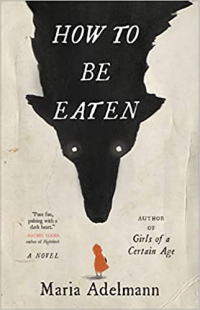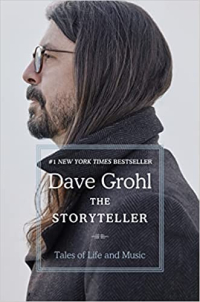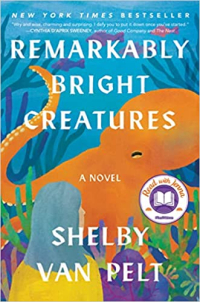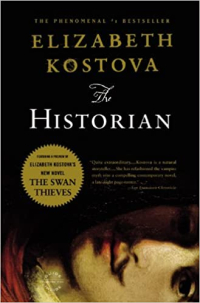Book Review: Gender Queer by Maia Kobabe
Saturday, October 01, 2022
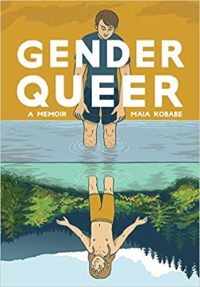 In June of 2021, one of the city council members of the city where I work got upset because of the library’s pride display. (You can read about it HERE.) I cannot, as a city employee, express my opinion publicly about this, but I will say it has been painful on many levels. It brought the national trend of book banning, interference in libraries by people who are not, in fact, knowledgeable about libraries, and even book burning into a very personal realm for me.
In June of 2021, one of the city council members of the city where I work got upset because of the library’s pride display. (You can read about it HERE.) I cannot, as a city employee, express my opinion publicly about this, but I will say it has been painful on many levels. It brought the national trend of book banning, interference in libraries by people who are not, in fact, knowledgeable about libraries, and even book burning into a very personal realm for me.
Libraries are places that share information, regardless of the subject.
My library—where I have worked for the past 14 years and where I have checked out books since 1994—has always supported the concept of Freedom to Read.
But in these strange political times, where the MAGA influences spread by the dufus are influencing actual people who live and work in our communities, the threat to books, libraries, freedom of thought and speech, and access to information is growing.
In that light, I am working on reading the books that are currently receiving the most banning threats in American society, and none gets more press than Gender Queer by Maia Kobabe, so I started there. My library does not own this book (there are only two libraries in the state of Utah who do) so I bought my own copy.
I have to be honest: with the furor over this book, I expected its pages to contain some very shocking content. And, sure. There are images of menstrual blood, “the bulge” as the narrator refers to it, boys kissing boys.
But absolutely nothing that should give rise to so much anger.
It is a memoir exploring the author’s growing understanding that e (the author uses the pronouns e/em/eir) doesn’t fit within the traditional boy/girl binaries of gender. E discusses eir explorations of gender and sexuality, mostly in books and discussions but with some actual sexual experiences. As this is a graphic novel, there are images on each page illustrating how e’s understanding grows and changes as e grows and changes as an adult.
One topic in the memoir that stood out for me was e’s experience with a gynecological exam. It was a horrifying and traumatic experience for e, and it made me think of my own experiences as a woman within our contemporary society. Especially within a very conservatively-religious society. It also sparked some discussions with friends, and I was surprised to learn (although I shouldn’t have been) how common my experiences are.
Pause there. A book that examines one person’s sexual identity sparked a discussion between two other people that might not have happened otherwise.
This is why the freedom to read is important. I, personally, am not a person who struggled like Maia struggled with identity. (I am a person who has never felt like I absolutely fit within the defined roles of “woman”: I struggle in groups of women to feel like I am normal, and every time I heard a church talk about how women are naturally nurturing shame grew deeper in me, because I am NOT naturally nurturing, not in the ways the church tells me I should be.) My friends who I’ve discussed the book with aren’t, either. But that writing about eirs struggles helped all of us understand ourselves better—which is secondary to the fact that it helped us understand er better.
Through reading we come to understand how lives that are different from ours are equally valid and full of worth. Those leaps of understanding are what the book banners don’t want to have happen.
They want us to stay constrained within one specific world view, which is the one that white Christian men continue to think of as “normal.” They don’t want people to understand The Other, because of we do that we might have to accept that The Other’s way of living is valid as well. And as the book banners cannot do that. Because they cannot imagine a world different from their own perspective, they believe that allowing the existence of The Other to have value will somehow threaten their way of living. They cannot imagine that society is large enough for white Christian men and people like Maia (or other LGBTQ+ people, or people of other races, religions, or nationalities).
If you live near me and would like to read Gender Queer, let me know. I’m happy to loan you my copy.
